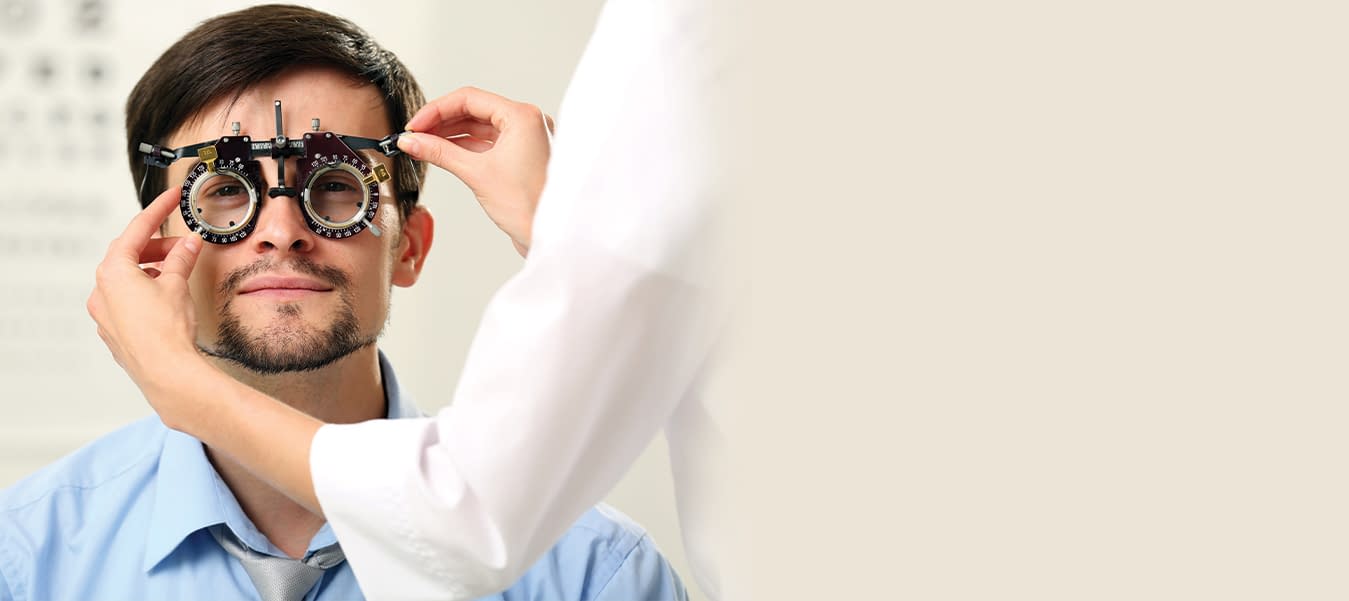Understanding the Retina: The Key to Clear Vision
The retina is a vital component of the human eye responsible for the conversion of light into electrical signals, enabling us to perceive visual information. It plays a crucial role in our vision and is composed of several layers of specialized cells that work in harmony to transmit visual stimuli to the brain. In this article, we will explore the structure and function of the retina, how it contributes to our vision, and its importance in maintaining overall eye health.
1. Introduction
The retina is a thin layer of tissue located at the back of the eye, lining the inner surface of the eyeball. It acts as a sensory membrane that captures and processes light, converting it into electrical impulses that are sent to the brain via the optic nerve. This remarkable process allows us to perceive and interpret the visual world around us.
2. Structure of the Retina
Layers of the Retina
The retina consists of several distinct layers, each with a specific function. These layers include the photoreceptor cells, retinal pigment epithelium (RPE), and various neural cells responsible for transmitting visual information.
Photoreceptor Cells
At the core of the retina are two types of specialized photoreceptor cells: rods and cones. Rod cells are responsible for vision in dim or low-light conditions, while cone cells are responsible for color vision and visual acuity in bright light. These photoreceptor cells contain light-sensitive pigments that undergo chemical changes upon exposure to light, triggering the electrical signals that are transmitted to the brain.
Retinal Pigment Epithelium (RPE)
The retinal pigment epithelium is a layer of cells located between the photoreceptor cells and the underlying blood vessels of the choroid. It plays a vital role in supporting and nourishing the photoreceptor cells, as well as maintaining the integrity of the retina. The RPE also helps absorb excess light and provides a barrier between the retina and the underlying structures.
Macula and Fovea
The macula is a small, specialized area in the center of the retina that is responsible for central vision and high-resolution visual acuity. Within the macula, there is a tiny depression called the fovea, which contains the highest concentration of cone cells and is crucial for detailed vision, such as reading and recognizing fine details.
3. Functions of the Retina
Light Reception and Conversion
The primary function of the retina is to receive light that enters the eye through the pupil and lens. The photoreceptor cells in the retina capture this light and convert it into electrical signals. Rod cells are highly sensitive to light and allow us to see in low-light conditions, while cone cells provide color vision and sharp visual acuity in bright light.
Signal Transmission
Once the light is converted into electrical signals, the retina processes and transmits this information to the brain for further interpretation. The electrical signals travel through the various neural cells of the retina, which amplify and refine the signals before they are sent through the optic nerve to the brain’s visual processing centers.
Central and Peripheral Vision
The retina is responsible for both central and peripheral vision. The macula, located in the central part of the retina, is responsible for central vision, allowing us to focus on and perceive fine details. The peripheral retina, surrounding the macula, enables us to have a wide field of view and detect objects in our side vision.
4. Retinal Disorders and Diseases
Several retinal disorders and diseases can affect the structure and function of the retina, leading to vision problems. Some common retinal conditions include:
Retinal Detachment
Retinal detachment occurs when the retina becomes separated from its underlying tissue. It is often caused by tears or holes in the retina, allowing fluid to accumulate and separate the layers. Symptoms of retinal detachment include sudden onset of floaters, flashes of light, and a curtain-like shadow or veil obscuring the vision. Immediate medical attention is necessary to prevent permanent vision loss.
Age-Related Macular Degeneration (AMD)
AMD is a progressive condition that affects the macula, leading to a loss of central vision. It is most commonly seen in older adults and can significantly impact daily activities such as reading, driving, and recognizing faces. Early detection and treatment are crucial in managing AMD and preserving vision.
Diabetic Retinopathy
Diabetic retinopathy is a complication of diabetes that affects the blood vessels in the retina. High blood sugar levels can damage the small blood vessels, causing them to leak or become blocked, leading to vision impairment. Regular eye examinations are essential for individuals with diabetes to monitor and manage diabetic retinopathy.
5. Importance of Regular Eye Exams
Regular eye exams play a vital role in maintaining retinal health and overall eye wellness. Eye care professionals can assess the condition of the retina, detect early signs of retinal diseases, and provide appropriate treatment options. Early intervention and timely treatment can significantly improve the prognosis of retinal conditions and prevent irreversible vision loss.
6. Tips for Maintaining Retinal Health
Taking proactive steps to care for your retinal health can contribute to maintaining good vision throughout your life. Here are some essential tips:
Healthy Diet and Lifestyle
A balanced diet rich in nutrients, particularly antioxidants and omega-3 fatty acids, can promote retinal health. Incorporate foods such as leafy greens, fish, citrus fruits, and colorful vegetables into your diet. Additionally, avoid smoking and maintain a healthy weight to reduce the risk of retinal diseases.
Protecting Your Eyes from Harmful Light
Excessive exposure to harmful ultraviolet (UV) light and blue light from digital screens can damage the retina. Wear sunglasses with UV protection when outdoors and consider using blue light filters or glasses when working on digital devices for extended periods.
Regular Eye Check-ups
Schedule regular comprehensive eye examinations with an eye care professional. They can assess your retinal health, screen for any abnormalities, and provide appropriate recommendations for maintaining or improving your vision and retinal health. Early detection and intervention are key in managing retinal conditions effectively.
7. Conclusion
The retina is a remarkable and intricate part of the eye that enables us to perceive and interpret the visual world around us. Its structure and function are essential for our vision and overall eye health. Understanding the role of the retina, recognizing the signs of retinal disorders, and taking proactive measures to maintain retinal health can significantly contribute to preserving clear and sharp vision. By prioritizing regular eye exams, adopting a healthy lifestyle, and protecting our eyes from harmful light, we can promote optimal retinal function and enjoy good vision for years to come.
FAQs (Frequently Asked Questions)
What are the common symptoms of retinal detachment?
Common symptoms of retinal detachment include sudden onset of floaters, flashes of light, and a curtain-like shadow or veil obscuring the vision. If you experience any of these symptoms, seek immediate medical attention.
Can retinal diseases be treated?
Yes, many retinal diseases can be treated, especially when detected early. Treatment options may include medication, laser therapy, or surgical interventions, depending on the specific condition.
Is it possible to prevent age-related macular degeneration?
While age-related macular degeneration cannot be completely prevented, certain lifestyle choices may help reduce the risk or slow down its progression. These include maintaining a healthy diet, not smoking, protecting your eyes from UV and blue light, and regular eye check-ups.
How often should I have an eye exam to monitor my retinal health?
It is recommended to have a comprehensive eye examination at least once every two years. However, individuals with pre-existing retinal conditions or risk factors may need more frequent check-ups as advised by their eye care professional.
Are there any natural remedies to improve retinal health?
While a healthy lifestyle, including a balanced diet and regular exercise, can support overall eye health, there is no proven natural remedy to cure or reverse retinal conditions. It is crucial to rely on professional medical advice and treatment options for any retinal concerns.






